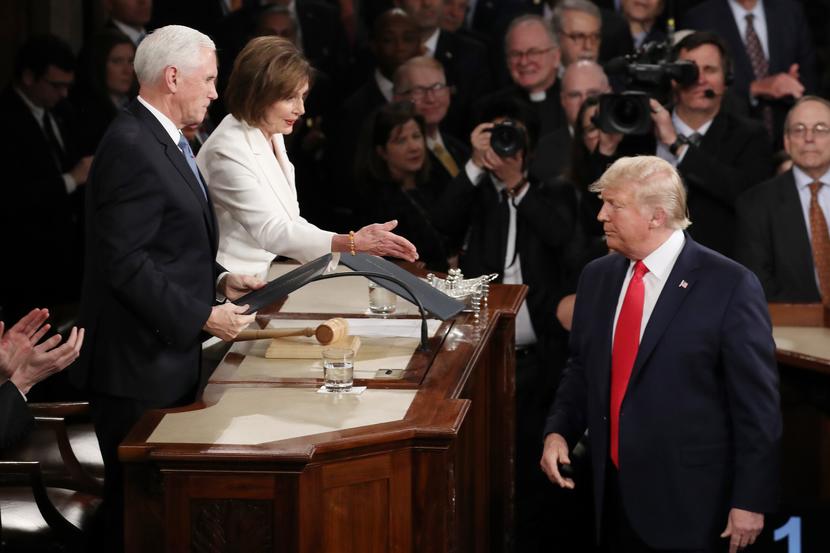If all goes according to plan, the Democratic-led U.S. House will vote later today on an ambitious, $3 trillion economic aid package, which would do an enormous amount of good for millions of Americans who need it. According to the latest tallies, the bill is likely to pass with at least a little Republican support.
But its prospects soon after are poor. Senate Republicans have spent the week treating the proposal like a pinata, and Donald Trump declared yesterday that the House plan is “DOA.”
There is no GOP alternative to the Democratic aid package, and Republicans don’t appear overly eager to work on one. Trump has said he’s in “no rush” to engage in economic policymaking; Mitch McConnell said his party has not “yet felt the urgency of acting immediately”; and the White House said talks may not begin in earnest until June.
As a policy matter, the Republican Party’s passivity is tough to defend, but as a political matter, the GOP is also taking a considerable risk. A New York Times report noted overnight that the party’s resistance “is proving increasingly unsustainable, given tens of millions of anxious Americans out of work, businesses and schools shuttered and an election looming.”
Indeed, the same Senate Majority Leader who insisted this week that there was no “urgency” to acting conceded yesterday that lawmakers will likely have to pass another aid package “at some point.” Despite his rejection of the House plan, McConnell added yesterday that he’s “certainly not ruling out another fiscal package.”
Even the White House has quietly opened the door to some kind of deal on an economic bill, though as a Washington Post report from yesterday afternoon made clear, the devil is in the details.
White House officials have privately signaled that they are willing to provide tens of billions of dollars in relief to states as part of a bipartisan deal with Democrats in the coming weeks, despite President Trump’s reluctance and strong opposition from conservative groups, according to seven people familiar with the internal deliberations who spoke on the condition of anonymity to discuss the matter.
At first blush, this may seem encouraging. Providing aid to cash-strapped states is a key element of the House Democratic plan, and if Team Trump is prepared to endorse a package with such funding, this would go a long way toward striking a sensible deal.
The problem is what the White House would seek in return.














